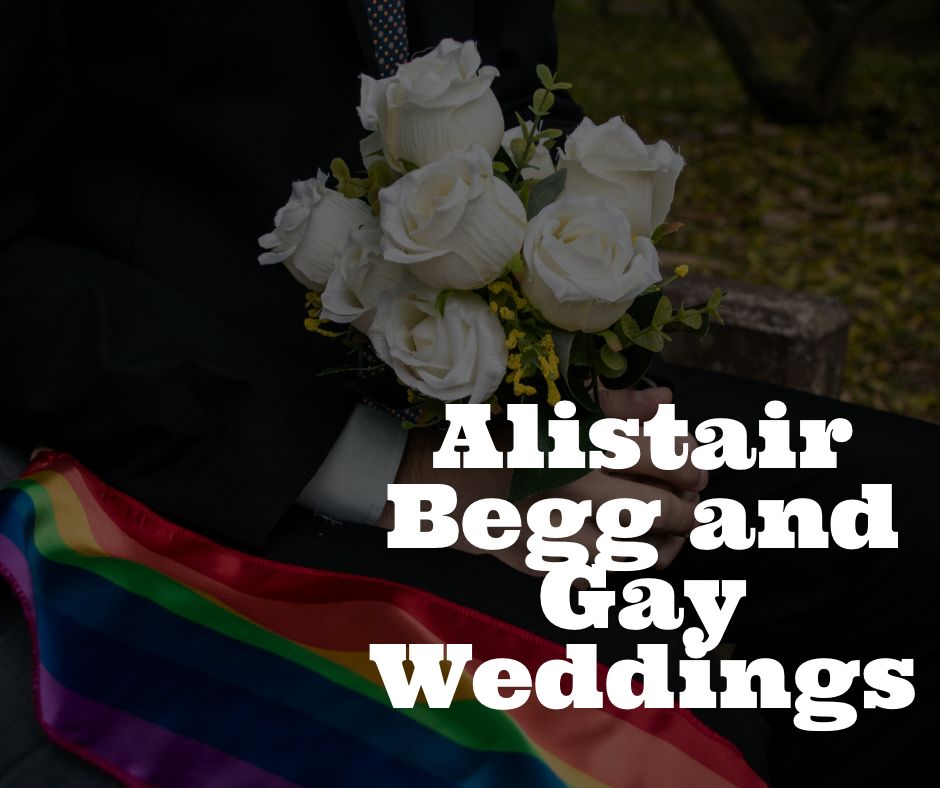I want to acknowledge that Alistair Begg’s ministry has been an illuminating journey into exegetical faithfulness. Five decades of opening your Bible and examining it verse-by-verse is the ol’ fashioned evangelical method, which has birthed much fruitfulness in this country and produced remarkable teachers. It worked for Martin Lloyd-Jones, John MacArthur, and many who followed in their train.
While I have not followed Begg’s ministry in over a decade, I know his fervor and sense of the holy from the testimony of many respected leaders in the Reformed world. So, it’s with enormous sadness that I have watched a man who should be ending his pastoral career at the height of ethical orthodoxy in his preaching and teaching utter unconscionable rubbish.
For those tuning in, here is the lengthy section from his interview with Bob Lepine:
BEGG: And in very specific areas this comes across. I mean, you and I know that we field questions all the time that go along the lines of “My grandson is about to be married to a transgender person, and I don’t know what to do about this, and I’m calling to ask you to tell me what to do”—which is a huge responsibility.
And in a conversation like that just a few days ago—and people may not like this answer—but I asked the grandmother, “Does your grandson understand your belief in Jesus?”
“Yes.”
“Does your grandson understand that your belief in Jesus makes it such that you can’t countenance in any affirming way the choices that he has made in life?”
“Yes.”
I said, “Well then, okay. As long as he knows that, then I suggest that you do go to the ceremony. And I suggest that you buy them a gift.”
“Oh,” she said, “what?” She was caught off guard.
I said, “Well, here’s the thing: your love for them may catch them off guard, but your absence will simply reinforce the fact that they said, ‘These people are what I always thought: judgmental, critical, unprepared to countenance anything.’”
—–
I have waited patiently to give honor to whom honor is due, but nothing has clarified his position. I often give these elderly statesmen honor (I Tim. 5:1). I want to believe Begg has not kept up with the times or failed to see the negative world and its ramifications. Or perhaps Begg stays away from these political discourses, and the moment he spoke into it, he butchered the pastoral applications. I am hoping for an ethical epiphany.
If anything, the Begg incident confirms that we can no longer afford to stay away from political discourse. If we were skeptical in the past, COVID infected our political apathy. If we are still saying that the politics of man hath nothing to do with the politics of heaven, we are seduced into a labyrinth of aloofness. Pastoral theology will suffer if we fail to speak objectively about cultural practices, especially as it pertains to sexuality.
The failure in Begg’s proposition is to enter into the conversation like a naive apologist for worldly love. In Begg’s understanding, love does not confront. But as the letter of II John makes clear, the priestly duty is protective. Even the context of the famous section of I Corinthians 13 pertains to the purity of the Church’s practices.
Priests guard the sacred places, and nothing in society communicates this holy practice more astutely in our day than the altar of marriage. Once we place our approval in the unsacred spaces to avoid the wrath of man, we have allowed the serpent to re-enter the gardens of holiness.
Romans 1 observes that God gave them over in the sinful desires of their hearts to sexual impurity for the degrading of their bodies with one another. The Apostle is addressing a distinct priestly theme–that of sacredness. A ceremony where two men or two women come together to share a ritualistic unity is a degrading of the holy thing.
There is no greater gift a grandmother gives to her lesbian granddaughter than the certainty that she will not violate or degrade the holy thing, especially the holiest of ceremonies. The Christian grandmother is not under the nebulous worldly concept of love but the biblical vision of love, which protects the rituals of biblical history. To affirm them is to see something sacred in what they are acting out, even though the Bible says they are acting out a lie, and Christians should not participate in lying rituals.
When a Christian does not attend such a wedding, it is not a form of absence to be condemned; it is a form of affirmation of the holy thing. The Christian is being present before God, and giving honor to the King of marriage.

















